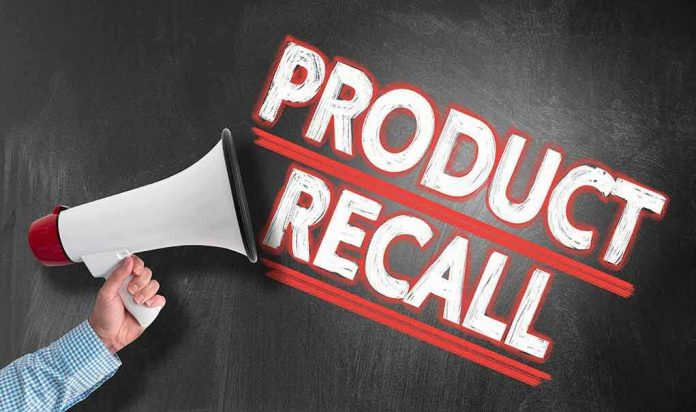
Wawa’s recall of nearly 3,000 bottles of milk and lemonade for “foreign matter contamination” reveals how even trusted brands can be forced to act fast when consumer safety hangs in the balance, and it begs a question: what, exactly, ends up in our drinks before we ever take that first sip?
Story Snapshot
- Wawa recalled select bottles of Strawberry Lemonade and Lowfat Strawberry Milk after discovering possible foreign matter contamination.
- The recall impacts 2,934 bottles, all with the November 7, 2025 code date.
- No illnesses or injuries were reported, and Wawa responded before any harm occurred.
- The incident underscores the delicate balance between consumer trust and corporate vigilance.
When Convenience Collides With Contamination
Wawa, a fixture for anyone living in the Mid-Atlantic or Florida who’s ever craved a quick sandwich or coffee, found itself at the center of a food safety storm on October 21, 2025. The company, alongside the FDA, issued a recall after detecting “foreign matter” in a limited batch of its popular 16-ounce Strawberry Lemonade and Lowfat Strawberry Milk bottles. For the roughly 2,934 consumers with those bottles in their fridges, one question suddenly mattered more than flavor: what exactly was in their drink?
Foreign matter contamination—a phrase as vague as it is unsettling—typically refers to unexpected objects or substances in food, ranging from bits of plastic or glass to stray metal shavings. In Wawa’s case, the recall was preemptive; no one had yet reported illness or injury. Still, the discovery was enough to trigger the removal of every affected bottle from shelves. Retailers scrambled to identify products with the November 7, 2025 expiration date, while customers checked their fridges, wondering if their next sip would come with an unexpected crunch.
The Anatomy of a Recall: Inside the Decision-Making Process
Recalls in the food and beverage industry are both routine and disruptive. For Wawa, a company built on reliability and convenience, pulling products is a worst-case scenario but a necessary one to maintain public trust. The process typically starts with a consumer complaint or quality control anomaly. Once contamination is suspected, internal teams investigate, identifying the scope of the problem by tracking lot numbers and distribution channels. The FDA steps in to ensure transparency, and if products have already reached consumers, public alerts go out immediately. In this case, Wawa’s rapid response reflected industry best practices and a clear understanding of how quickly a minor issue can spiral into a brand crisis.
Wawa’s statement urged customers to check their purchases, return affected bottles, and accept full refunds. The company’s approach—swift, public, and apologetic—was calculated to reassure loyalists and satisfy regulators. The FDA, for its part, published safety alerts and continues to monitor the recall’s progress, underscoring its watchdog role even as it relies on businesses to self-regulate day-to-day operations.
Consumer Trust and the Cost of Transparency
For the average shopper, this recall is a wake-up call about the invisible risks behind everyday routines. The numbers—just under 3,000 bottles—may seem trivial in the context of Wawa’s vast sales. Yet even a limited recall can trigger waves of concern, especially in an era of heightened awareness around food safety. Consumers expect transparency and accountability, and companies like Wawa know that a single misstep, if mishandled, can undo years of goodwill.
Experts in food safety generally praise companies that act before anyone gets hurt. A proactive recall demonstrates corporate responsibility, showing that customer welfare takes precedence over short-term profits. However, professionals also caution that repeated incidents—regardless of how well they are handled—can erode trust. Public perception hinges not just on the recall itself, but on what comes next: stricter quality controls, transparent communication, and, most importantly, the absence of further incidents.
Why Recalls Matter More Than Ever
Wawa’s recall highlights the intricate dance between convenience, safety, and trust that defines the modern food industry. Each recall, no matter how minor, ripples outward—affecting not just the company and its customers, but regulators, suppliers, and competitors. The short-term impact is measured in refunds and lost sales; the long-term calculation is much trickier. Will consumers return, reassured by transparency, or will doubts linger, fueling the next viral headline?
As the FDA and Wawa work to ensure every affected bottle is accounted for, other beverage makers take note. Recalls remind the industry that vigilance is non-negotiable. For consumers, the lesson is equally clear: trust is precious, but it is always earned—one uncontaminated bottle at a time.
Sources:
Wawa drinks milk recall FDA safety alert (APP)
Wawa Just Recalled Milk & Lemonade Due to Foreign Matter Contamination (AOL)













